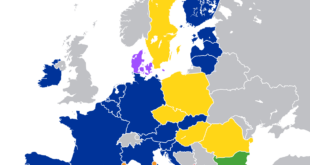Recently, the Election Commission of India (ECI) has notified the updated list of registered political parties, seeking deregistration of parties which do not contest elections, also it raised concerns over misuse of income tax exemption law.
Important points:
- There are over two thousands registered unrecognised parties, and the EC has sought the power to deregister (Cancel registration) inactive parties over fears of such entities misusing income tax exemption law.
- ECI also pushes for a wide range of electoral reforms to usher in digitisation, removing duplication of voters and enabling remote voting for Non-Resident Indians (NRIs), even migrant workers within the country.
- The ECI is not empowered to de-register parties on the grounds of violating the Constitution or breaching the undertaking given to it at the time of registration.
- ECI has the power to register parties under the Representation of the People Act,(RPA) 1951, but it does not have the power to deregister parties that are inactive.
- A party can only be de-registered if its registration was obtained by fraud; if it is declared illegal by the Central Government; or if a party amends its internal Constitution and notifies the ECI that it can no longer abide by the Indian Constitution.
- It is suspected that several unrecognised parties may be engaged in money laundering, given the income tax exemptions they enjoy.
- The Association of Democratic reforms, a watchdog NGO on electoral issues, has reported that the number of registered unrecognised political parties has increased twofold in the last 10 years.
- Section 13A of the Income Tax Act, 1961 has given 100% exemption to political parties on its income from house property, income from other sources, capital gains and voluntary contributions received from any person however, subject to certain conditions.
Way Forward
- The role played by the ECI has bestowed a very high level of confidence in the minds of Indian citizens in ensuring the purity of the elected legislative bodies in the country.
- However, the grey areas in the legal sphere must be rectified, so that ECI can ensure the proper functioning of the democracy via free and fair election.
SOURCE: THE HINDU,THE ECONOMIC TIMES,MINT
 Chinmaya IAS Academy – Current Affairs Chinmaya IAS Academy – Current Affairs
Chinmaya IAS Academy – Current Affairs Chinmaya IAS Academy – Current Affairs



